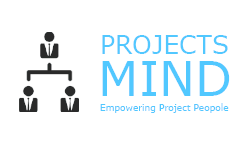Conflict Resolution
As a project manager, you are responsible for delivering your project on time, within budget, and to the satisfaction of your stakeholders. However, achieving these goals can be challenging when you have to navigate conflicts within your team or with other stakeholders. Conflict resolution is a vital skill that project managers must possess to succeed in their role. In this article, we will explore the importance of conflict resolution in project management and provide you with practical tips for managing conflicts in your projects effectively.
Understanding Conflict Resolution in Project Management
Conflict is an inevitable part of any project, and as a project manager, it’s your role to manage it appropriately. When left unaddressed, conflict can derail your project, cause delays, and impact team morale. On the other hand, addressing it effectively can lead to a better understanding of the issues, improved communication, and an opportunity to find a mutually beneficial solution that works for everyone involved.
Conflict resolution involves a process of identifying, addressing, and resolving issues that arise among team members or stakeholders. The goal is to find a solution that meets everyone’s needs while ensuring the project’s success. The key to effective conflict resolution is to approach it in a calm and rational manner.
Importance of Conflict Resolution in Project Management
Conflict resolution is a vital skill for project managers for several reasons:
1. Improves Communication
Effective communication is crucial in project management, and conflict resolution can help improve it. When conflicts arise, it’s essential to communicate openly and transparently to understand the issue’s underlying cause. Addressing the conflict head-on can help team members feel heard, understood and can prevent further misunderstandings from occurring.
2. Increases Team Morale
When conflicts are not resolved, they can impact team morale negatively. Conflicts can create a toxic work environment, and unresolved conflicts can affect performance, motivation, and trust. By addressing conflicts, team members can feel valued and supported, which can ultimately lead to improved team morale.
3. Minimizes Risks
Conflicts can lead to delays, missed deadlines, and reduced project quality, which can have significant impacts on the project’s success. By addressing conflicts early and finding resolutions, you can minimize the risks and ensure your project stays on track.
4. Builds Stronger Relationships
Conflict resolution provides an opportunity to build stronger relationships with team members, stakeholders, and clients. By addressing conflicts effectively, you can build trust and demonstrate your commitment to finding solutions that work for everyone. This can lead to better collaboration, improved communication and strengthen relationships that can benefit your project and your team.
Tips for Managing Conflict in Your Projects
Now that we have established the importance of conflict resolution in project management let’s look at some practical tips for managing conflicts in your projects:
1. Identify the Root Cause
The first step in addressing a conflict is to identify its root cause. It’s important to understand the underlying issues that are causing the conflict to occur. This may involve speaking with team members privately or conducting a team meeting to understand each person’s perspective.
2. Encourage Open Communication
Open communication is key to effective conflict resolution. Ensure that team members feel comfortable expressing their concerns, opinions and are heard. Encourage open dialogue and be prepared to listen to all parties involved without judgment.
3. Remain Calm and Professional
As the project manager, it’s crucial to remain calm and professional when addressing conflicts. Avoid getting emotional or defensive, as this may escalate the situation. Instead, focus on finding solutions that work for everyone.
4. Find Common Ground
When conflicts arise, it’s unlikely that everyone will agree on a solution immediately. Look for common ground and areas where compromises can be made. By finding a mutually beneficial solution, you can ensure that everyone’s needs are met, and the project can move forward.
5. Document the Conflict and Resolution
Ensure that conflicts are documented, along with the resolution to ensure that all parties understand the agreed-upon solution. This will also help prevent any misunderstandings or misrepresentations from occurring later.
Conclusion
Conflict resolution is an essential skill for project managers to possess. By addressing conflicts, you can build stronger relationships with team members, minimize risks, improve communication and team morale, and find solutions that work for everyone. Remember to approach conflicts in a calm and rational manner, identify the root cause, encourage open communication, find common ground, and document conflicts and resolutions.
As a project manager, your ability to manage conflicts effectively can make a significant impact on your project’s success. Make conflict resolution a priority, and you will see the benefits in the quality of work, team morale, and stakeholder satisfaction.







Recent Comments